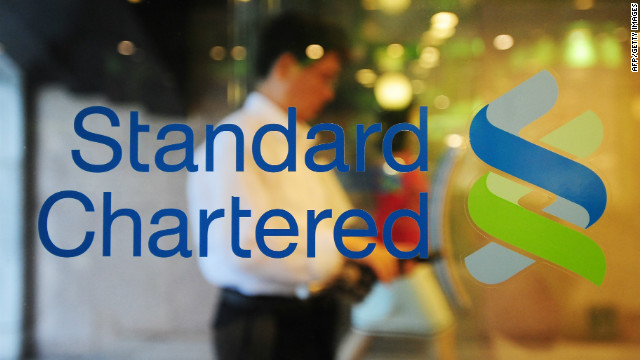You Fxcking Americans. Who are you to tell us?
Wow…Standard Chartered really got the guts!!! ![]()

By Tom Braithwaite, Kara Scannell and Sharlene Goff, Financial Times
August 7, 2012
This is a summer to forget for British banks in the US. One after another, Barclays, HSBC and now Standard Chartered have had excruciating internal emails and conversations revealed by US investigators.
StanChart is accused by New York state’s Department of Financial Services of concealing transactions on behalf of Iranian banks and breaching US sanctions on the country in the process.
The regulator’s 27-page report quotes from an email sent in 2006 from StanChart’s chief executive for the Americas to the group executive director for risk, warning of potentially “catastrophic reputational damage” and potential “serious criminal liability” for executives over work for Iranian clients.
The group director allegedly replied: “You f—ing Americans. Who are you to tell us, the rest of the world, that we’re not going to deal with Iranians?”
The order on Monday, which threatened to revoke StanChart’s banking licence, came as a bolt from the blue for the bank, according to people familiar with the matter, even though it has been in talks with US authorities over the issue for months.
Only last week, the bank, which makes almost 90 per cent of its pre-tax profit in Asia, the Middle East and Africa, distanced itself from the recent Libor rigging scandal that has engulfed many of its rivals and trumpeted the bank’s superior “culture”.
StanChart reiterated its earlier disclosure that it was conducting a review of its historical US sanctions compliance with US enforcement agencies and regulators. While it said it could not predict what the outcome would be, it said the breaches were not of the same scale as those facing rival HSBC, which was heavily criticised last month for failing to prevent money laundering by Mexican drug gangs.
StanChart said it was confident it had “very robust controls and processes” in place to deal with these kinds of issues.
It is not the first bank to run into trouble for allegedly “wire stripping” — removing codes that identify Iranian institutions for money passing through the US. Two years ago, Barclays agreed to pay $298m for transactions on behalf of customers from Cuba, Iran and Sudan that were under sanctions from the Treasury’s Office of Foreign Assets Control.
A spokeswoman for Cyrus Vance, the Manhattan district attorney, said his office “aggressively investigates, and has secured significant settlements against, banks that have intentionally evaded United States sanctions that are designed to interrupt terrorist financing”. Since 2009, four banks have paid more than $1.8bn based on state and federal investigations into their allegedly illegal conduct: ING, Barclays, Credit Suisse, and Lloyds TSB Bank, she said. “Beyond that, we do not comment on ongoing investigations.”
For much of the period in question the transactions themselves did not necessarily flout US law. Until 2008, so-called “U-turn” transfers, which involved Iranian clients but only passed through the US financial system, were permitted. But to make use of the exemption banks were required to comply with strenuous disclosure, which StanChart is alleged to have evaded.
Other banks have paid fines to settle similar allegations from US authorities, though StanChart is required to appear at a meeting next week and explain why it should be allowed to retain its New York banking licence.
The US is not a big centre of operations for StanChart, whose focus is Asia. But analysts at Bernstein warned that the loss of the banking licence could lead to “significant loss of earnings … as a bank like StanChart servicing clients in emerging markets could book trades in different jurisdictions that actually result from structuring transactions in the US”. The analysts also warned of the risk that the incident could spark “management change”.